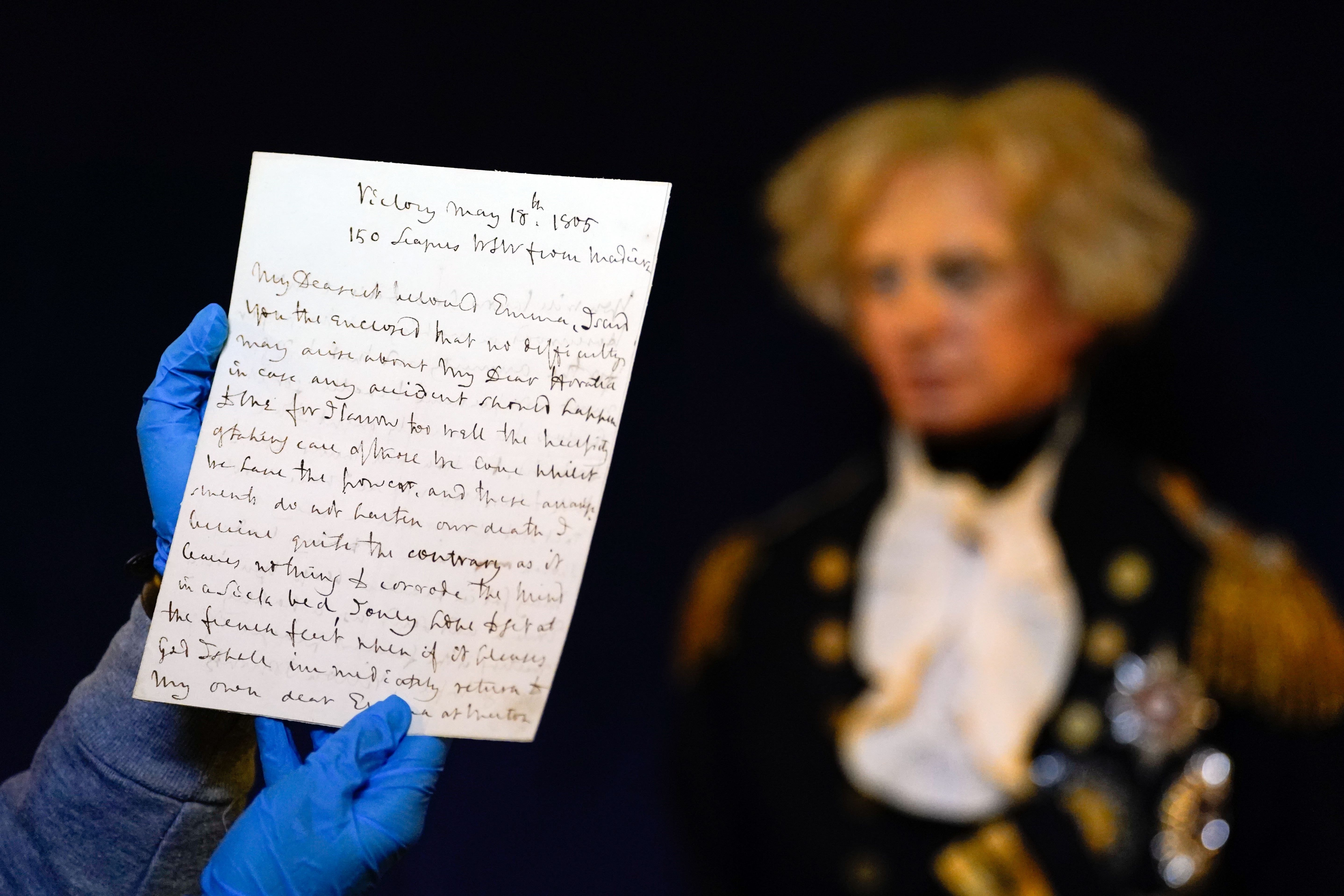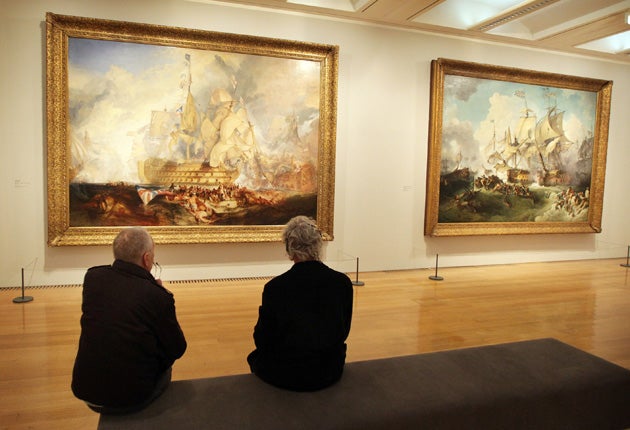Admiral Nelson’s actual final words as he died at the Battle of Trafalgar finally ‘revealed’
Letter also suggests Nelson was shot twice and not once as once thought

Your support helps us to tell the story
From reproductive rights to climate change to Big Tech, The Independent is on the ground when the story is developing. Whether it's investigating the financials of Elon Musk's pro-Trump PAC or producing our latest documentary, 'The A Word', which shines a light on the American women fighting for reproductive rights, we know how important it is to parse out the facts from the messaging.
At such a critical moment in US history, we need reporters on the ground. Your donation allows us to keep sending journalists to speak to both sides of the story.
The Independent is trusted by Americans across the entire political spectrum. And unlike many other quality news outlets, we choose not to lock Americans out of our reporting and analysis with paywalls. We believe quality journalism should be available to everyone, paid for by those who can afford it.
Your support makes all the difference.Admiral Lord Nelson’s famous last words may not have been “kiss me, Hardy,” according to a newly unearthed letter.
Instead, the British naval hero is claimed to have declared, “Thanks be to God, I have but lived this day and now I die content,” after being fatally shot during his victory over the Franco-Spanish fleet at Trafalgar in 1805.
The letter, set to be auctioned, challenges the long-held official account, which has Nelson uttering his famous line to Admiral Sir Thomas Hardy, his flag captain.
The letter will go under the hammer on Wednesday (18 December) at Bonhams, New York, and is said to have been written by petty officer, George Sievers, six days after Nelson’s killing.
Sievers, a master-at-arms on HMS Belleisle, is reported to have fought in the battle, but he was not present at the death of the Admiral. The letter is expected to be sold for $2,000 (£1,600).
The Battle of Trafalgar saw the Royal Navy defeat a joint Franco-Spanish fleet thus preventing it from taking control of the English Channel, which would have enabled the French dictator to launch a land invasion of Britain.
The letter, dated 27 October 1805, also claims that Lord Nelson was shot not once as originally thought, but twice.

“Lord Nelson in the Victory engaged the French Admiral most closely, during the heat of the action his Lordship was wounded with a grapeshot in the side and was obliged to be carried below,” he wrote.
“Immediately on his wound being dressed he insisted again on being brought on deck when shortly afterward he rec’d [received] a shot through his body he survived however till the evening: long enough to be informed of the capture of the French Admiral and of the extent of the glorious victory he had obtained.
Addressed to Sievers’ landlord, Thomas Tunnard, the two-page letter written from Gibraltar adds: “His last words were, ‘Thanks be to God, I have but lived this day and now I die content’.”

The two-page letter adds: “I have the satisfaction to inform you of a most complete victory gained by our Fleet over the combined fleet of France and Spain on Monday the 21st of October.
“When they commenced a most awful fire on us we were at first engaged by Eleven sail of the Line when we were totally dismasted they cut our Bowsprit in Pieces and dismounted a number of our Guns [and] left us a complete wreck.
“I am happy to inform you that after three hours in this dreadful situation I had the satisfaction to see one three Decker and two seventy fours strike to the Belleisle and one Frigate we sunk and every soul on board perished in the Ocean.”
Darren Sutherland, Bonhams senior specialist of fine books and manuscripts in New York, said: “This seaman’s account from aboard the Belleisle provides a fascinating look at the Battle of Trafalgar, as well as an important early description of the death of Nelson.
“The accepted version of his last words often includes ‘kiss me, Hardy’ – this particular construction has not been seen before and was conveyed within a week of his death.
“Although Sievers was not present on the Victory, he was on an adjacent ship and would have picked up the story very near the event.”
Join our commenting forum
Join thought-provoking conversations, follow other Independent readers and see their replies
Comments